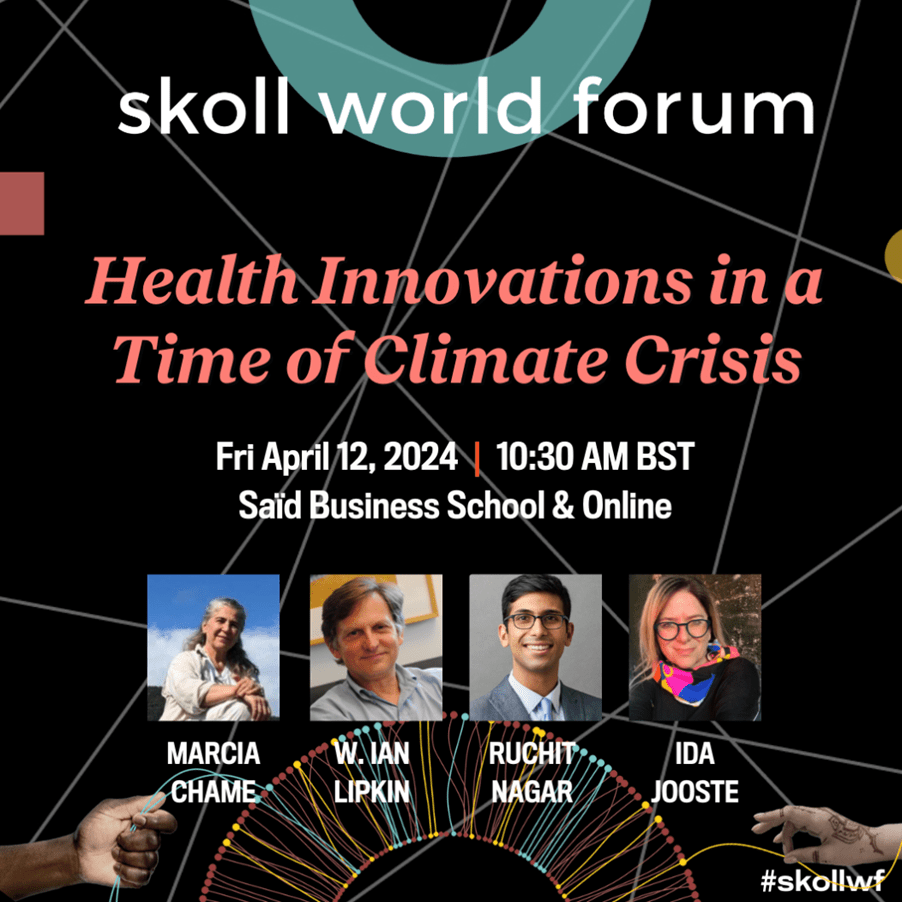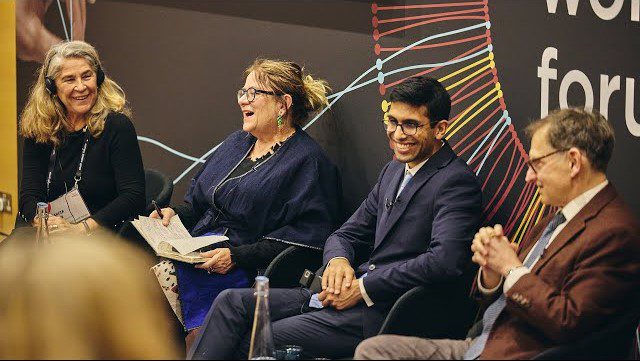
The Skoll World Forum, which was held in Oxford, England on the 9th – 12th April, brought together philanthropists, scientists, social entrepreneurs and thought leaders from around the globe to network and discuss solutions for the world’s most pressing problems.
Big themes at the gathering were AI (with discussions about threats and opportunities), global health security, climate change, and also misinformation and disinformation and the role journalists, social media platforms and the law can play to address this.
Did you know? George and Amal Clooney are using their fame and influence to campaign against what they called the ‘war on truth, journalists and women’. You can view one of the Forum highlights here, an interview with George and Amal Clooney, who founded the Clooney Foundation for Justice.
Internews also had a presence at the Skoll World Forum. You can view the session, “Health Innovations in a Time of Climate Crisis”, which was moderated by Internews Senior Health Media Adviser, Ida Jooste, here.

About the session:
From changes in disease patterns to health systems ill-equipped for climate disasters, the dire impacts of the climate crisis on human health can no longer be ignored. Communities experiencing the most severe impacts of this crisis are pioneering solutions to meet new challenges and protect both planetary and human health. This session dived deeper into these inspiring innovations and explored the challenges, key success factors, and support needed to improve health outcomes amid the climate crisis.
The speakers were:
- Dr. Marcia Chame, Coordinator of the Wild Health Information Center and the Biodiversity and Wild Health Institutional Platform, Oswaldo Cruz Foundation (Fiocruz)
- Dr. W. Ian Lipkin, Director, Center for Infection and Immunity, Columbia University
- Dr. Ruchit Nagar, CEO & Co-Founder, Khushi Baby
They all presented innovative solutions to the health impacts of climate change. These ranged from monitoring macaque monkeys in the Amazon for signs of illness to help evaluate whether diseases like yellow fever are circulating in animals and humans; using wearable technology to monitor the health of moms and babies in Rajasthan State in India; and to the design of a multi-plex testing and analysis machine, which – once fully developed – would able to test for any and all viruses and bacteria present in blood samples. The three scientists were challenged in the Q and A session to ensure these good news stories reach the ears of policymakers and decisionmakers. This is where journalists come in! Let us know if you’d like to be put in touch with any of the speakers.